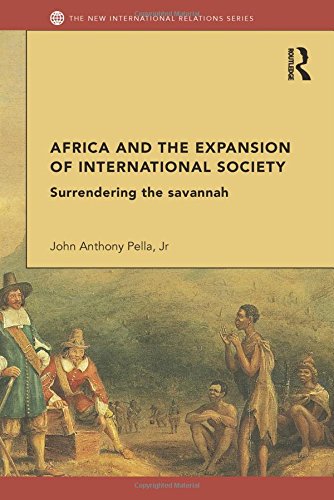

Most ebook files are in PDF format, so you can easily read them using various software such as Foxit Reader or directly on the Google Chrome browser.
Some ebook files are released by publishers in other formats such as .awz, .mobi, .epub, .fb2, etc. You may need to install specific software to read these formats on mobile/PC, such as Calibre.
Please read the tutorial at this link. https://ebooknice.com/page/post?id=faq
We offer FREE conversion to the popular formats you request; however, this may take some time. Therefore, right after payment, please email us, and we will try to provide the service as quickly as possible.
For some exceptional file formats or broken links (if any), please refrain from opening any disputes. Instead, email us first, and we will try to assist within a maximum of 6 hours.
EbookNice Team

Status:
Available0.0
0 reviewsThis book explores the West-Central African role in, and experience during, the expansion of international society.
Building upon theoretical contributions from the English School of international relations, historical sociology and sociology, it departs from Euro-centric assumptions by analysing how West-Central Africa and West-Central Africans were integral to the ways in which Europe and Africa came together from the fifteenth century through to the twentieth. Initially, diverse scholarship concerned with the expansion of international society is examined, revealing how the process has often been understood as one dictated by Europeans. From there a new approach is developed, one which is better able to examine the expansion as an interactive process between individuals, and which puts the African experience at the heart of study. The empirical research that follows this draws upon primary sources to introduce a number of historically significant and ground-breaking cases into international relations, including; the international relations of West-Central Africa before the European arrival, the emergence and growth of the trans-Atlantic slave trade, the attempts to ‘civilize’ Africa, and the ‘scramble’ to colonize Africa. This book argues that the expansion of international society was driven by individual interaction, and was shaped by both Africans and Europeans.
This book will be of interest to students and scholars of international relations, international relations theory, history, African politics, the English school and constructivism.
Author John Anthony Pella introduces his book African and the Expansion of International Society: Surrendering the Savannah http://www.routledge.com/politics/articles/featured_author_john_anthony_pella/